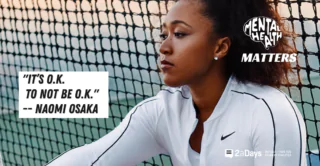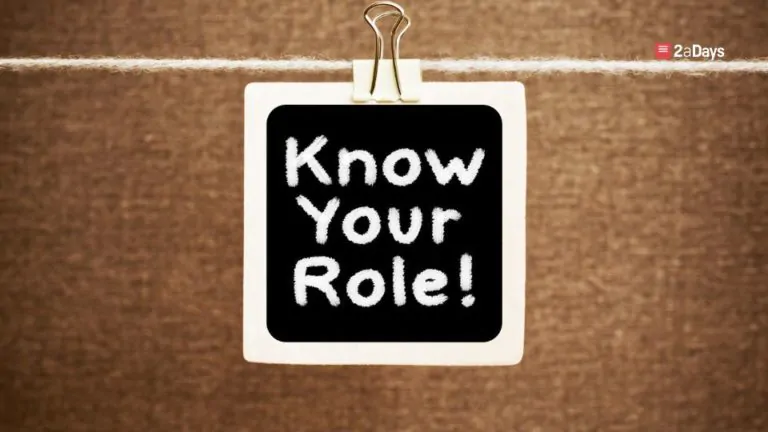Naomi Osaka first burst onto the scene in 2016 becoming a top 50 WTA women's tennis player and her career took off from there. In 2017, she scored her first two wins against top-10 players. In 2018, she defeated her idol Serena Williams winning her first grand slam and the US Open Championship.
She was just 21 at the time–by 2021, she had already won four slams.
Then, most recently, in 2022, she was the highest paid female athlete in the world. Keep in mind, Osaka's still in her mid 20s.
At a glance, many would imagine that these moments would be some of the happiest moments of Osaka's life. Then again, the perceived glamor of fame is just the surface.
Osaka's Mental Health Story
While winning her first slam against Serena Williams thrusted her into the national spotlight, it was also the onset of depression and anxiety for Osaka. “The truth is that I have suffered long bouts of depression since the US Open in 2018 and I have had a really hard time coping with that,” Osaka tweeted. “Anyone that knows me knows I'm introverted, and anyone that has seen me at the tournaments will notice that I'm often wearing headphones as that helps dull my social anxiety.”
Related: Battling Performance Anxiety as a College Athlete
In May of 2021, the depression and anxiety boiled over. Osaka abruptly withdrew from the 2021 French Open to prioritize her mental health–and while Osaka noted she has no ill will towards the press and media, it stresses her out to speak in public and come up with the perfect answer, thus worsening her mental health.
A few months later after losing to Lleylah Fernandez in the 2021 US Open, Osaka couldn't find joy in competing anymore, and took a three–month break from the sport.
Then, most recently in 2022, after one of her opening games in the middle of her Indian Wells match, a heckler screamed “Naomi, you suck!”
Throughout that match, Osaka was visibly upset and crying, and even addressed it after the match ended.
This was the breaking point.
After her sister expressed concern, Osaka began therapy in the ensuing weeks to prioritize her mental health.
“It doesn't mean you are broken”
“It's kind of a scary first step to take … but I think it can be helpful to everyone in some shape or form and especially so to a large section of people,” Osaka said. “It doesn't mean you are broken.”
Therapy has given her the outlet to work on coping mechanisms and breathing skills when feeling tense.
Related: “Therapy Has Saved Me”: Michael Phelps Mental Health Profile
On top of this, Osaka began introducing new mechanisms to prioritize her mental health such as journaling, gaming, and meditation.
Last May, Osaka became active with mental health initiatives, partnering with the wellness platform, Modern Health – aimed at reducing stigmas associated with mental illness.
“I do hope that people can relate and understand it's O.K. to not be O.K., and it's O.K. to talk about it,” Osaka said. There are people who can help, and there is usually light at the end of any tunnel.”
Osaka's words led to other players coming out and discussing their struggles:“It's O.K. to not be O.K., and it's O.K. to talk about it.”
In the last year or so, we've seen more professional tennis players addressing their mental health struggles, including Nick Kyrgios, Paula Badosa, and most recently Amanda Anisimova, who has taken an indefinite leave of absence to focus on her mental health.
Osaka and her peers have all prioritized their mental health, finding the right balance between playing and self-care.
Related: 3 Quick and Easy Self Care Tips for Busy Athletes
At the end of the day, whether you've won four slams, or never competed at a high level, it's important to remember that you are so much more than just an athlete, and the pressures can become so overwhelming. Just as Osaka did, when you feel that way, taking a step back and prioritizing yourself is a sign of strength, not weakness.
Remember, Naomi Osaka is a four-time grand slam champion.
Also remember that Naomi Osaka was the highest paid female athlete in 2022.
However, before any of that, she's a human being with feelings and emotions, just like any of us.
No amount of money or fame immunizes her from mental health struggles.
As we've learned, especially this month, we are all human beings at the end of the day.
Have an idea for a story or a question you need answered? Want to set up an interview with us? Email us at [email protected].
Image Credit: Naomi Osaka Website
* Originally published on May 16, 2023, by Nicholas Nathanson







